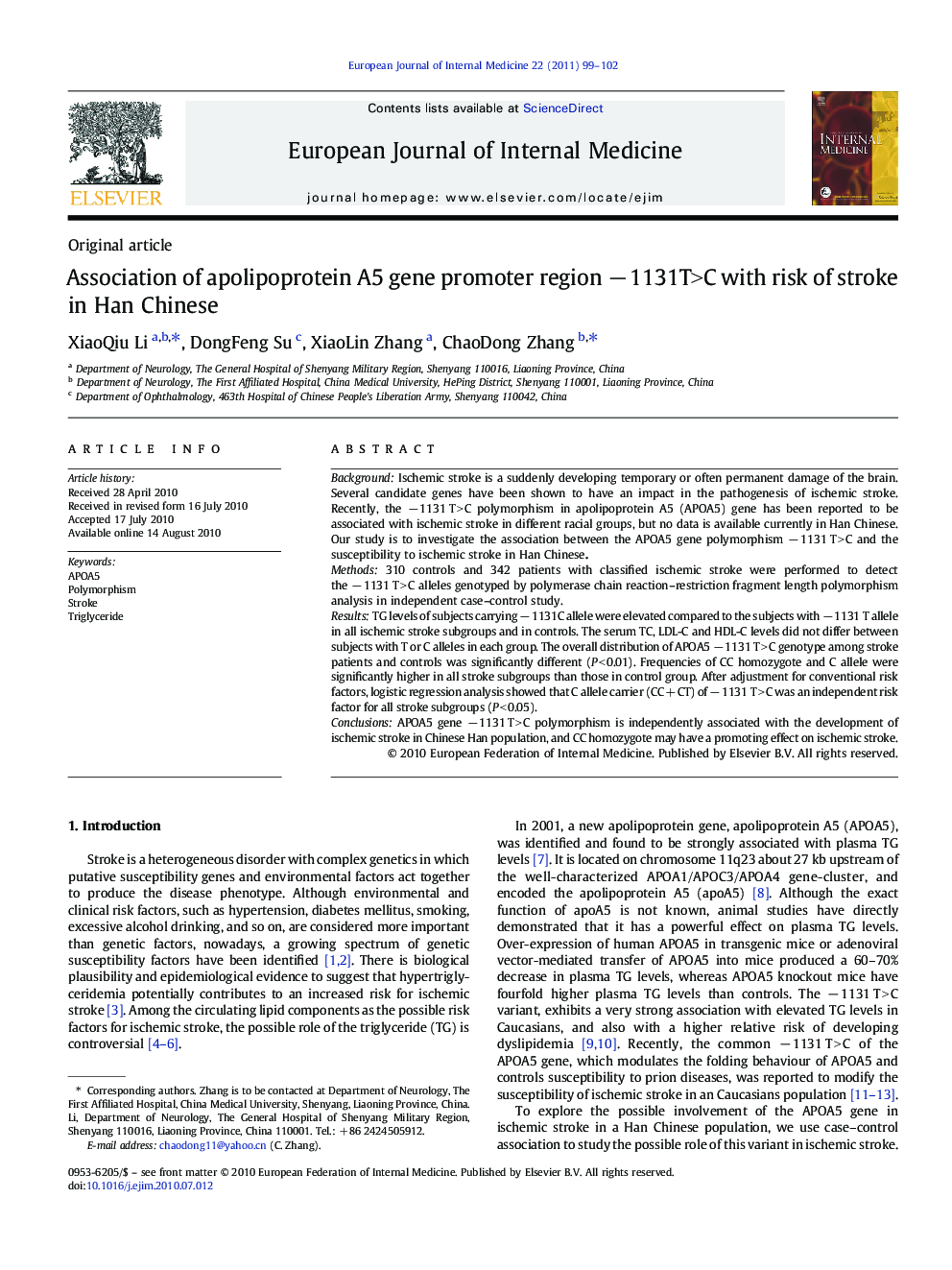| Article ID | Journal | Published Year | Pages | File Type |
|---|---|---|---|---|
| 3466495 | European Journal of Internal Medicine | 2011 | 4 Pages |
BackgroundIschemic stroke is a suddenly developing temporary or often permanent damage of the brain. Several candidate genes have been shown to have an impact in the pathogenesis of ischemic stroke. Recently, the − 1131 T > C polymorphism in apolipoprotein A5 (APOA5) gene has been reported to be associated with ischemic stroke in different racial groups, but no data is available currently in Han Chinese. Our study is to investigate the association between the APOA5 gene polymorphism − 1131 T > C and the susceptibility to ischemic stroke in Han Chinese.Methods310 controls and 342 patients with classified ischemic stroke were performed to detect the − 1131 T > C alleles genotyped by polymerase chain reaction–restriction fragment length polymorphism analysis in independent case–control study.ResultsTG levels of subjects carrying − 1131C allele were elevated compared to the subjects with − 1131 T allele in all ischemic stroke subgroups and in controls. The serum TC, LDL-C and HDL-C levels did not differ between subjects with T or C alleles in each group. The overall distribution of APOA5 − 1131 T > C genotype among stroke patients and controls was significantly different (P < 0.01). Frequencies of CC homozygote and C allele were significantly higher in all stroke subgroups than those in control group. After adjustment for conventional risk factors, logistic regression analysis showed that C allele carrier (CC + CT) of − 1131 T > C was an independent risk factor for all stroke subgroups (P < 0.05).ConclusionsAPOA5 gene − 1131 T > C polymorphism is independently associated with the development of ischemic stroke in Chinese Han population, and CC homozygote may have a promoting effect on ischemic stroke.
